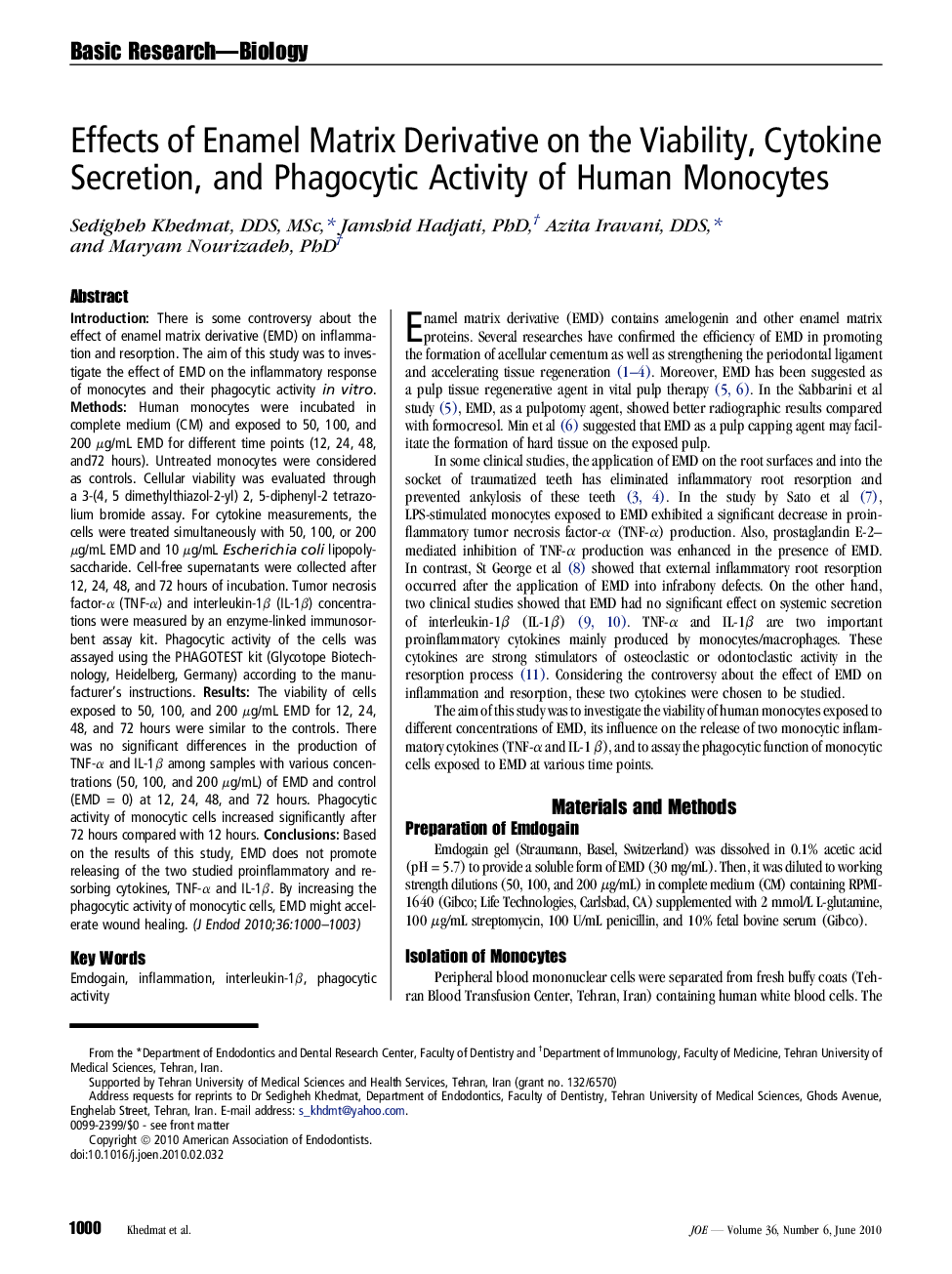| Article ID | Journal | Published Year | Pages | File Type |
|---|---|---|---|---|
| 3150598 | Journal of Endodontics | 2010 | 4 Pages |
IntroductionThere is some controversy about the effect of enamel matrix derivative (EMD) on inflammation and resorption. The aim of this study was to investigate the effect of EMD on the inflammatory response of monocytes and their phagocytic activity in vitro.MethodsHuman monocytes were incubated in complete medium (CM) and exposed to 50, 100, and 200 μg/mL EMD for different time points (12, 24, 48, and72 hours). Untreated monocytes were considered as controls. Cellular viability was evaluated through a 3-(4, 5 dimethylthiazol-2-yl) 2, 5-diphenyl-2 tetrazolium bromide assay. For cytokine measurements, the cells were treated simultaneously with 50, 100, or 200 μg/mL EMD and 10 μg/mL Escherichia coli lipopolysaccharide. Cell-free supernatants were collected after 12, 24, 48, and 72 hours of incubation. Tumor necrosis factor-α (TNF-α) and interleukin-1β (IL-1β) concentrations were measured by an enzyme-linked immunosorbent assay kit. Phagocytic activity of the cells was assayed using the PHAGOTEST kit (Glycotope Biotechnology, Heidelberg, Germany) according to the manufacturer's instructions.ResultsThe viability of cells exposed to 50, 100, and 200 μg/mL EMD for 12, 24, 48, and 72 hours were similar to the controls. There was no significant differences in the production of TNF-α and IL-1β among samples with various concentrations (50, 100, and 200 μg/mL) of EMD and control (EMD = 0) at 12, 24, 48, and 72 hours. Phagocytic activity of monocytic cells increased significantly after 72 hours compared with 12 hours.ConclusionsBased on the results of this study, EMD does not promote releasing of the two studied proinflammatory and resorbing cytokines, TNF-α and IL-1β. By increasing the phagocytic activity of monocytic cells, EMD might accelerate wound healing.
